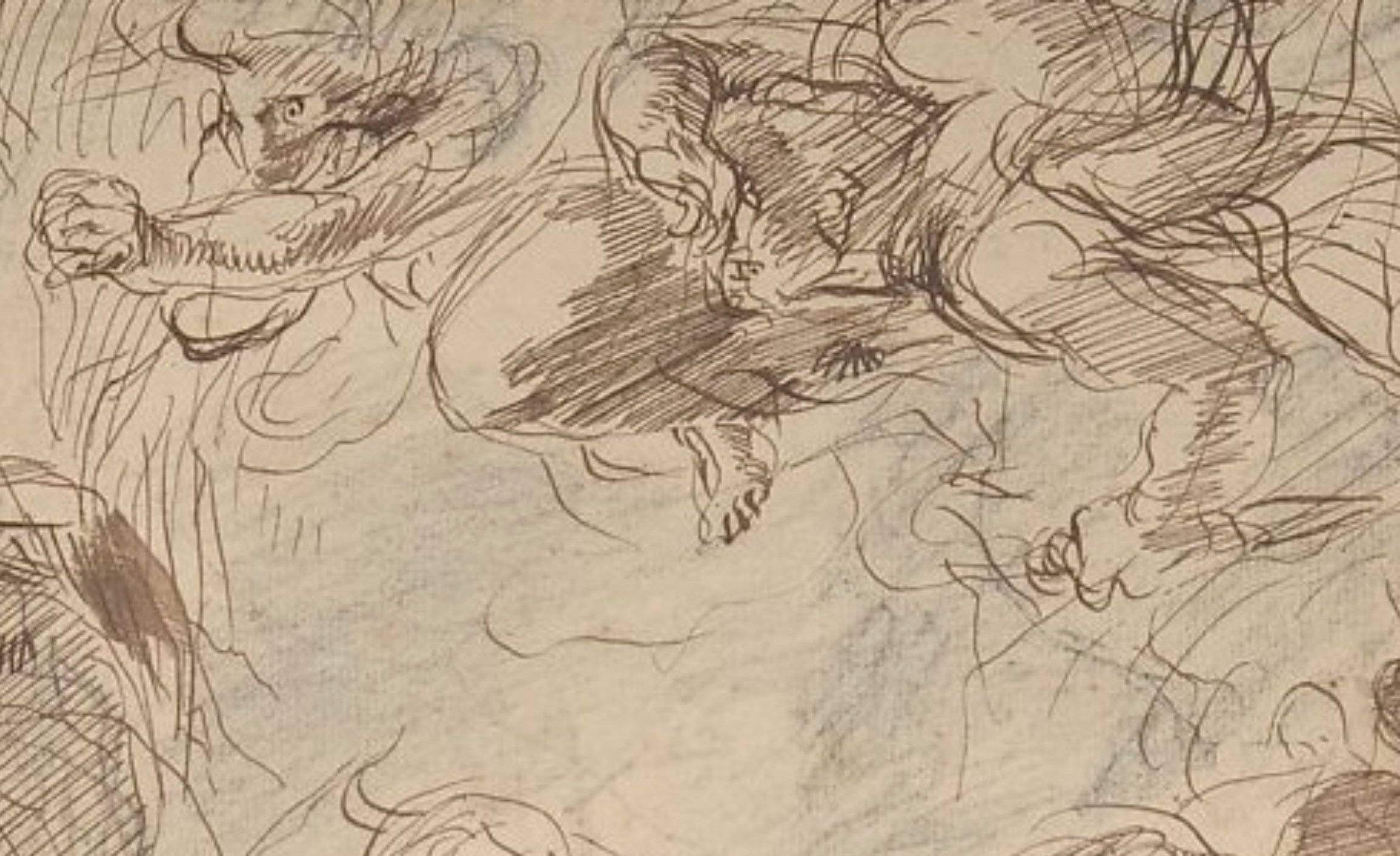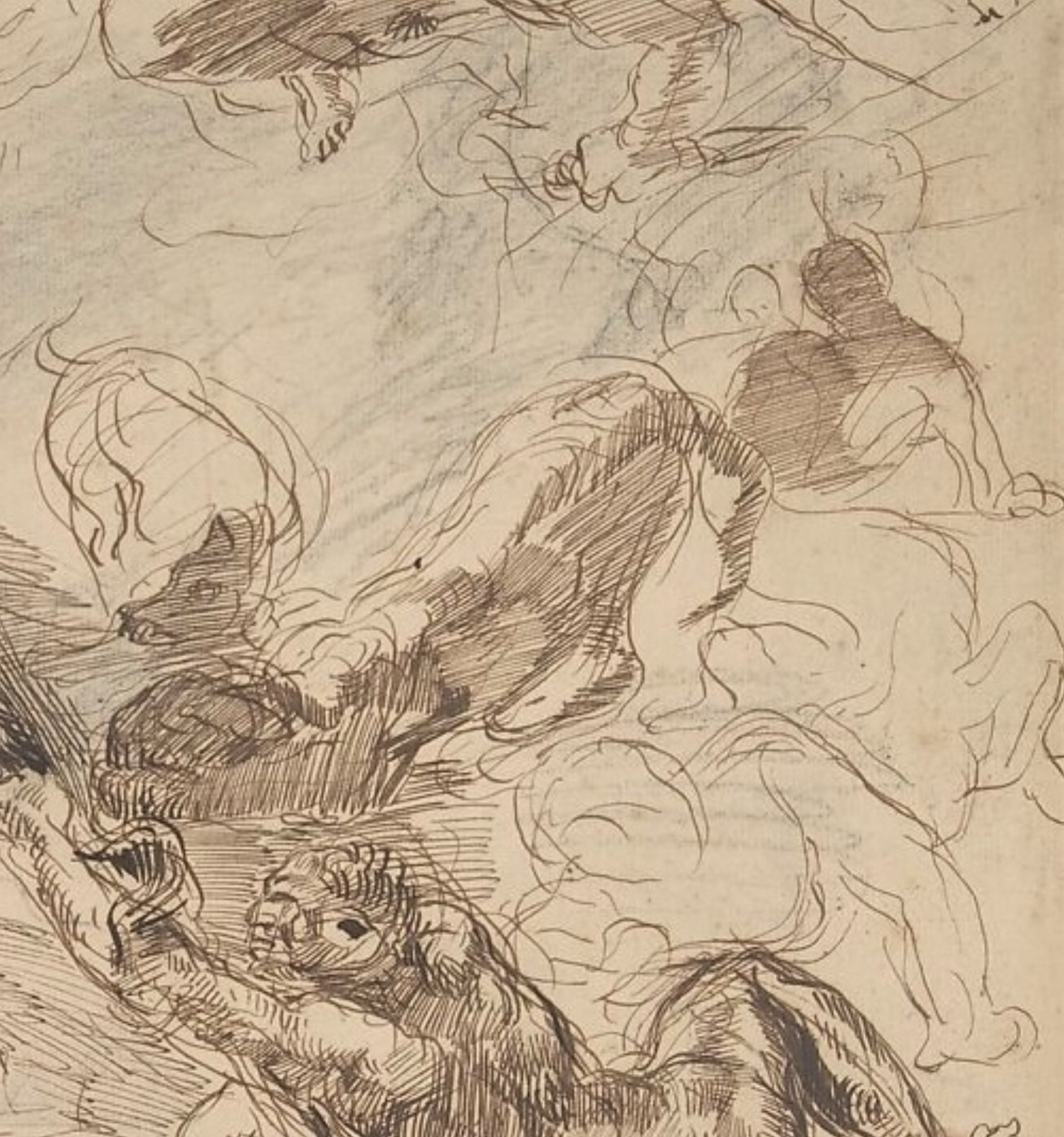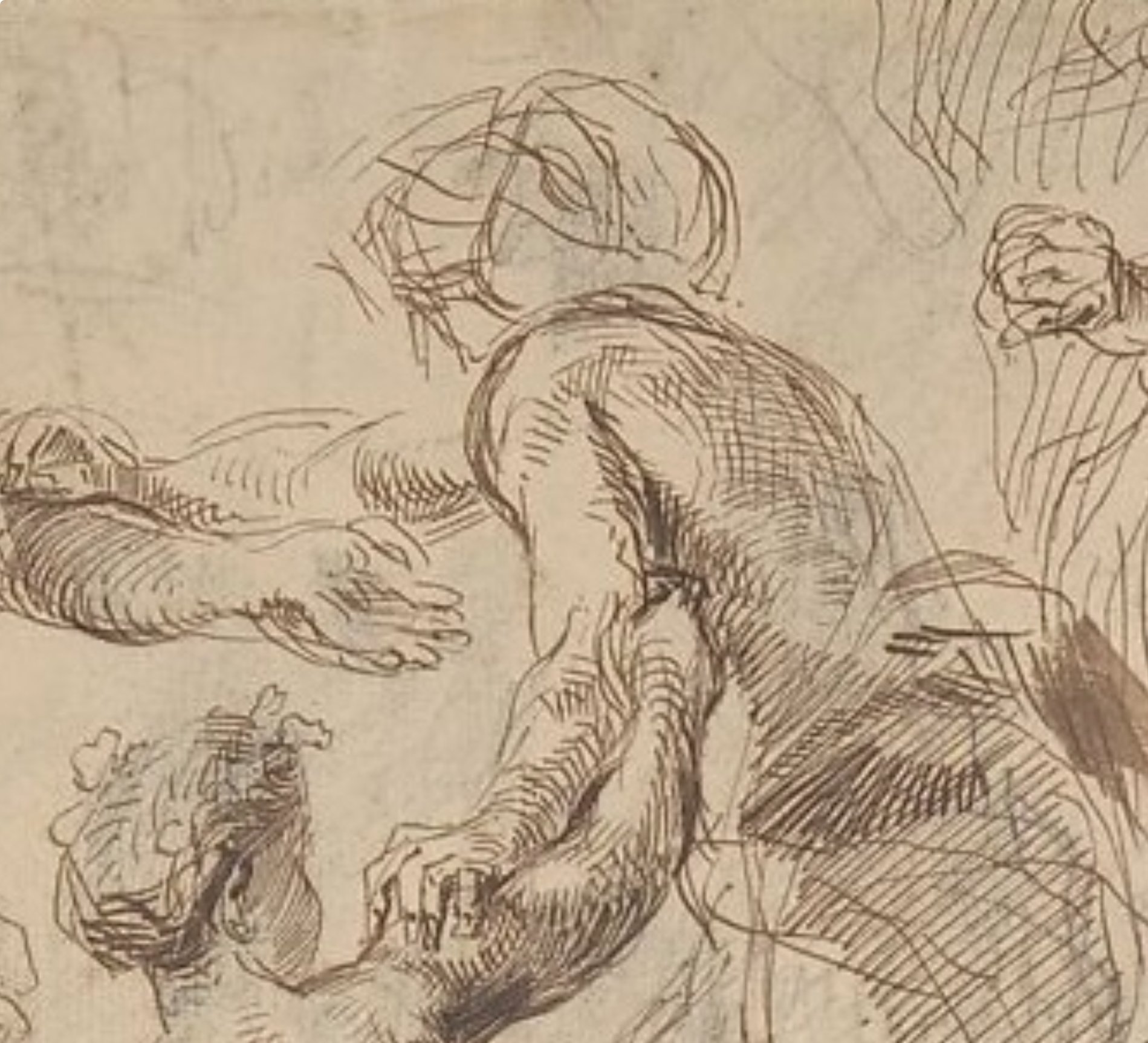I love a good allegory. It’s a way to say things that can’t be said. More often than not, allegory is not a way to say anything new, but it’s a way to say something that’s eternal. It’s the “It is known” of art, yet it’s still a secret club. And there are so many ways to execute on it.
In this allegorical Delacroix sketch “The Triumph of Genius over Envy,” Genius is the man in the center who is moving towards the left side of the sketch. The woman in the far left is Fame (Source). The younger character in the foreground with the club is supposed to be Heroic Virtue (Same source).
Let’s talk about Envy in this sketch. Rather than a singular entity, it’s a whole system of creatures - Envy is represented by two dogs tearing at the robes of Genius, as well as a fallen, spiny, dark humanoid figure, who is also tearing at the robes of Genius.
There’s also an airborne contingent of Envy, two snake-eyed flying creatures, where one is reaching out, and one has a dagger-like weapon. Whether the creatures of Envy are reaching our their claws for Genius, or they already have a fistful of the robes of Genius, there’s certainly a lot of them, and they either want to have a hold on him, or they have a slipping grasp.
There’s more to Envy that Delacroix had planned, like these two outlined figures below. One has the look of a humanoid salamander with a huge tail. Another couple figures similar to this one are supine in the background.
Envy crawls, it bites, it flies. It has reserve forces waiting in the wings, or the background. It’s both a beatdown and a teardown that Genius is transcending.
There’s a slight incline that Genius is treading up, he is going upwards towards Fame, while Envy is pulling down.
Who, or what, is Genius in this sketch? We can’t quite make out the face. Is he looking forward? Is he looking backwards? Down?
Delacroix seemed to be in the middle of deciding this. If the youth with the club is already looking backwards, maybe his ultimate decision would have been to have Genius looking ahead, to finish out a triangle of gazes that happen on the upper left of the sketch. Fame’s head is tilted slightly down so that her face is pointed at Heroic Virtue. Heroic Virtue is looking back, towards Envy, but also supporting Genius. Genius is undefined. Aside from the outlined salamander people, Genius’s face is the most unfinished, mysterious aspect of the sketch.
I had to notice that Heroic Virtue isn’t raising the club at Envy. The club is a supportive weapon instead, a proverbial Big Stick. I get the idea that it isn’t Heroism’s job to defeat Envy for Genius. Envy also doesn’t look terribly injured or beaten back. Genius just has to plod out of it all, somehow.
Unlike Genius, we seem to know Fame very well. She’s clearly defined. Her clothes and body are easy to see, and Heroism is also very definite. Both Fame and Heroism have symbols on their heads, Heroism has laurels, and Fame seems to have a circlet of faintly outlined stars.
Similarly, the sprawled aspect of Envy is super defined, down to the muscles and tail.
What I also found interesting here is that Genius is almost stripped naked by Envy. Fame has plenty of clothes on, and Heroic Virtue is shirtless but looks pretty tidy. Meanwhile, Genius looks like he is about to lose his last ragged robes to Envy, perhaps the very moment he falls into Fame’s arms. The right hand of the spined aspect of Envy seems to be resting on some of Genius’s torn clothes.
I’m only a little sad that this sketch never became a painting - because it’s such a good sketch. It could have been its own form of Liberty Leading the People. As a sketch, the understated parts of it give a proper amount of power to the abstract concepts of Genius and Envy. Unlike Liberty Leading the People, where the French flag is highly visible, there probably wouldn’t be any contemporary references in a painting like this, unless they were hidden. This wouldn’t have been an allegorical painting about a nation or governance, but it would have still been about a battle and a clear triumph.
It’s an important and curious message. Why does Genius have to triumph over Envy, instead of something like Stupidity or Boredom or Distraction? Maybe there’s something of envy in all of those, and more. Striding, unseeable Genius is undeniably torn up by the forces of Envy, but eventually it triumphs.






